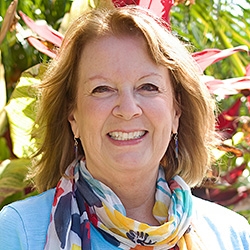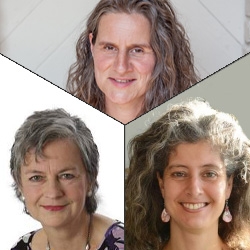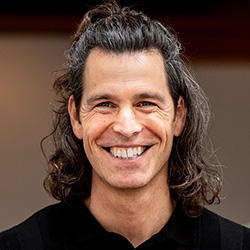

Search Results: resolutions
-
This holiday, shift your focus from what disappoints you to the true whisperings of your heart. Compassion is an inside-outside process. In this telecourse recording, you will experience four simple tools for savoring your own precious needs, allowing you to experience greater compassion and harmony this holiday.
-
Join Jim and Jori Manske in a thought experiment exercise designed to help us become more aware of our conditioning, allowing us to make more conscious and connected choices in the face of conflict.
-
It seems to me that people see ideas which are different from theirs as threatening. Instead of listening, the group polarizes around the different ideas and a lot of judgments develop, conflicts develop and people feel hurt. Forward progress becomes a battle ground. How can I support more collaboration?
-
How can I deal with someone who is constantly interrupting and derailing our process?
-
Listen to John talk about the inner and outer mediation process, the importance of the "3rd chair," and an experience of working with Pakistani elders.
-
Want things to change in your community, but feel frustrated or don’t know what to do? Miki’s intriguing overview of how to apply the principles of NVC to social change movements may have the exact blend of inspiration and ideas you’re seeking!
-
Conflict occurs when disagreements undermine the sense of trust and safety in family, workplace, or community. Shantigarbha shares nine tips for addressing, and even transforming conflict.
-
If you're stuck when making a decision with someone, it's likely that you've skipped hearing and connecting to one another's needs. Slow down and listen for what's really important underneath the content. This allows you to make decisions that are more fulfilling and harmonious.
-
Some arguments stay stuck because each person thinks it's about the content of the argument, rather than the needs each person is attempting to protect. When the needs get attached to the strategies a "no way out" scenario gets created. Instead, fully step into one another's worlds and connect to the feelings and needs behind the strategy each party is putting forth. Read on for six elements to creating empathic connection.
-
Let's take a look at life-serving possibilities for changing a habit: contemplation of the benefits and costs of the habit, changing the conditions in your life to support the new habit, and taking support away from the old habit. Read on for more.
-
Mediation is a great skill to have whether it's for your personal relationships or in the workplace. We look at four different techniques and their benefits in a role-play between two neighbours discussing a dispute.
-
Mediation is a great skill to have whether it's for your personal relationships or in the workplace. We look at four different techniques and their benefits in a role-play that takes place in an informal, unorganised setting.
-
Building trust involves each person taking responsibility for what they want by identifying their needs, and making specific and doable requests that open a negotiation. Identify in what contexts you already have trust, what you want to be able to trust, and how you may be blocking or cultivating that trust. Making requests for specific actions of what to do differently can also help.
-
Conflict is normal and natural and yet we are still often surprised by it and unprepared to deal with it. You will come away from this session with the tools for creating simple agreements with your group about what to do when conflict arises.
-
How do you solve a conflict? By not trying to solve it! Yoram suggests building your conflict resolution muscles by practicing connecting to the needs behind the conflict instead. Check out this excerpt from Session 1 of his 2021 course, Connecting in Conflict and the Art of Navigating Dialogue. Listen.
-
-
-
-
-

Quick Links
Subscription Preferences
Stay In Touch!
Looking for ways to keep up with NVC Academy news, get special offers, free resources, or words of inspiration? Here are five ways to stay engaged:
















